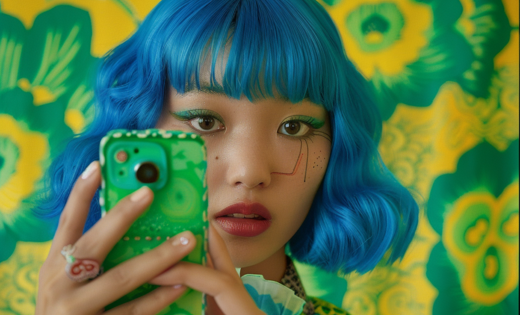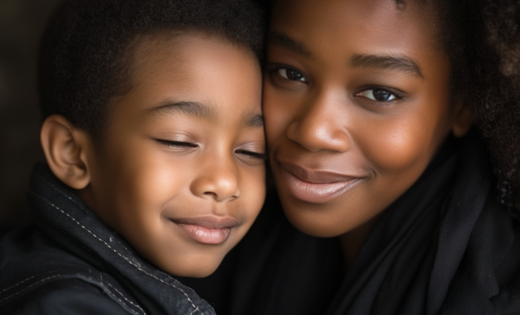on
BY SIMONE J. SMITH
In the not-so-distant past, having a tattoo was often viewed as a mark of rebellion, or deviance from societal norms. People with tattoos were frequently stigmatized and unfairly judged, their inked skin seen as a reflection of their character, or morality. Tattoos were associated with certain subcultures, or marginalized groups, leading to stereotypes and misconceptions about those who adorned themselves with ink. Thankfully (for me, and many others) as time has progressed, perceptions have shifted dramatically.
Tattoos are now celebrated as forms of self-expression, art, and personal storytelling. Society has become more open-minded and accepting, recognizing that tattoos do not define a person’s worth, or identity. From corporate professionals to creative artists, individuals from all walks of life proudly display their tattoos, embracing their uniqueness and diversity.
This transformation reflects a broader cultural shift towards inclusivity and respect for individual autonomy. In today’s society, tattoos serve as badges of honor, commemorating meaningful experiences, honoring loved ones, or simply showcasing one’s creativity. So, it was only a matter of time until we actually had our own day, a time to finally create an official holiday for the tattoo community! March 21st, 2024, was World Tattoo Day, a day of breaking down stereotypes, as well as demystifying and destigmatizing the tattoo industry and the ever-growing cultural phenomenon of the craft.
There is an artist amid Toronto’s buzzing tattoo scene that stands out as an industry leader, drawing passionate clients from across the globe who travel to his studio, Tony Tonez Tattoos. As a Toronto-based tattoo artist, Tony Duran pulls inspiration from his cultural roots in “The Chicano Style,” a vibrant fusion that contains varied influences, including the Mexican Revolution to LA’s low-rider culture.
In the realm of artistry, particularly in fields such as: makeup, tattooing, or portraiture, a profound understanding and skill in working with all skin types are indispensable, and it is a skill that Tony has mastered. This holds especially true for darker skin tones, which have historically been underrepresented and underserved in many artistic disciplines.
When Tony speaks to the nuances of darker skin. He explains that it is not merely a matter of technical proficiency; it’s a testament to an artist’s commitment to inclusivity and cultural sensitivity. From comprehending the subtleties of undertones to ensuring colors pop vibrantly, the ability to celebrate and enhance the beauty of darker skin requires both expertise and empathy. In today’s diverse world, where representation matters more than ever, Tony speaks to the fact that artists must equip themselves with the knowledge and techniques to cater to the full spectrum of skin tones, affirming the inherent beauty of every individual they encounter.
I had an opportunity to steal some of this artist’s time, and during our discussion, Tony shared with me the importance of spreading more knowledge about tattoos. “A lot of people are not educated on the process,” Tony shared. “It is a lot more than picking an image and putting it on your skin.”
“When someone comes into my shop, or makes an appointment, I make sure to do my research. I ask questions like, what type of work do you do? I look at their age, especially if they want to do a certain type of tattoo. I remind them that it is a lifetime commitment, not a decision that should be made on a whim.”
“I have tattooed: police officers, lawyers, and real estate agents. I have even had some famous people in my chair, most notably Cory Joseph. People admire great artwork, and with how tattoos are accepted now, you would be surprised at who ends up in my chair.”
“What advice would you give to individuals who may be hesitant to get tattoos due to concerns about societal judgments or stereotypes, especially those related to gender and professionalism,” I asked?
“Again, it’s about asking the right questions; what can you stare at in the mirror with confidence? Will you be excited 10 years down the line? What means the most to you? Depending on the answer, I lend my professional advice at that time. It is really up to the individual, but I take the time to work through the process with them before we get anything started.”
Artists like Tony Duran are important to the industry. Spreading knowledge about the process of getting tattoos is essential due to widespread misconceptions and a lack of education among many individuals. After speaking with Tony, I now understand why educating people about the tattooing process helps dispel myths and alleviate fears associated with it.
By understanding the intricacies involved, individuals can make informed decisions about whether tattooing is right for them and what to expect throughout the process. Moreover, raising awareness about the importance of choosing a reputable and licensed tattoo artist can contribute to safer practices within the industry. Through education, Tony empowers individuals to approach tattooing with confidence, respect, and a better understanding of its artistry and cultural significance.
As the stigma surrounding tattoos continues to fade, we move towards a more inclusive and accepting society where self-expression is celebrated rather than judged. If you are interested in learning more about tattoos and if this representation of artwork is right for you; take a trip down to Tony Tonez Tattoos and learn everything you need to know about entering this burgeoning art world. Make sure to check out his incredibly, impressive artwork style at https://tonytonez.com/
Stay in the loop with exclusive news, stories, and insights—delivered straight to your inbox. No fluff, just real content that matters. Sign up today!
We, as humans are guaranteed certain things in life: stressors, taxes, bills and death are the first thoughts that pop to mind. It is not uncommon that many people find a hard time dealing with these daily life stressors, and at times will find themselves losing control over their lives. Simone Jennifer Smith’s great passion is using the gifts that have been given to her, to help educate her clients on how to live meaningful lives. The Hear to Help Team consists of powerfully motivated individuals, who like Simone, see that there is a need in this world; a need for real connection. As the founder and Director of Hear 2 Help, Simone leads a team that goes out into the community day to day, servicing families with their educational, legal and mental health needs.Her dedication shows in her Toronto Caribbean newspaper articles, and in her role as a host on the TCN TV Network.













